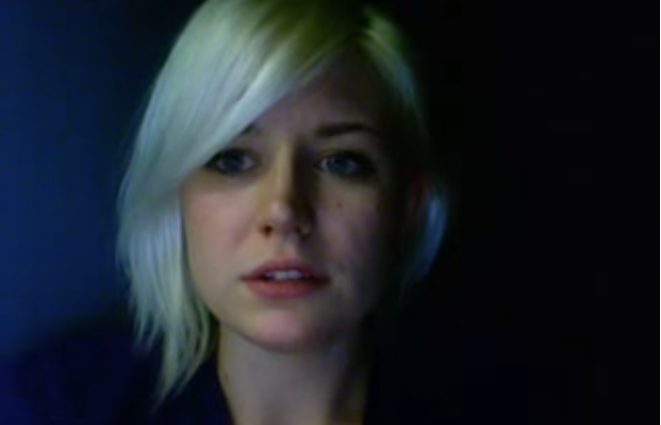What the Many Reactions to Emily Letts’ Video Tell Us About Society’s Views on Abortion
Since the video Letts shot of her abortion went viral, the reactions have been varied: There are people who need help resolving their feelings after an abortion, and ostensibly pro-choice people who've chided her, saying she isn't a perfect spokesperson for the cause since she acknowledged that she wasn't using birth control when she got pregnant.

Dr. Drew: “Let me ask a crazy question. Did you get pregnant in order to do this video?”
When I heard Dr. Drew pose this question to Emily Letts—an abortion counselor who recently made headlines for filming her abortion—I wanted to cry. I know there is little trust or respect for women in our society, but I just couldn’t wrap my mind around that level of cynicism.
As you probably know, Emily Letts’ video of her abortion, “This Is My Story,” has gone viral. Letts has been inundated with requests for interviews from all over the world. You have probably seen or heard some of them. She is a wonderful, authentic spokesperson for valuing and trusting women and their choices.
As you can imagine, the volume of feedback has been overwhelming. Some people have congratulated her for her bravery, some have condemned her for “murdering her baby,” and some are contacting her because they need help resolving their feelings after an abortion. Other people who say they are pro-choice have chided Letts, saying she isn’t a perfect spokesperson for the cause—since she acknowledged that she wasn’t using birth control when she got pregnant—and that her video is a publicity stunt. Each of these audiences represents a part of the political and social landscape of the current abortion reality. I say hooray for the people who are thanking Letts for her honesty and courage. And I am not giving any of my energy to the people who think she “murdered her baby.” But I am interested in the women who need help and the pro-choice people who are offended.
There has been speculation that some of the negative comments from people who identify themselves as pro-choice may actually be from anti-choice people who are determined to stir the pot. But I also think there are negative reactions coming from people who really do think of themselves as pro-choice. Perhaps some of these comments are indicative of the gap between the theory of being pro-choice and the actual nitty-gritty of abortion.
Some people think Letts’ video trivializes abortion because she is very open about not being traumatized or feeling guilty about it. They don’t like her being honest that she wasn’t using birth control, because it seems like she’s being a bad role model. Some comments seem to be saying that an abortion is too personal to “reveal” (as if we are not a society that reveals everything!). To me this comes down to recognizing that we have to tell our secrets in order to preserve our privacy. The gay rights movement has seen this all too clearly. “SILENCE=DEATH” referred to the consequences of keeping secrets when it came to AIDS. Likewise, sharing the complex, nuanced reality of abortion, adoption, and parenting—telling the secrets that harm us when we hide them—may help us create a dialogue with pro-choice people who are uncomfortable with the reality of our work.
If you find yourself in one of these discussions, take a cue from Emily Letts and don’t see yourself as the target. It is essential to remember that everyone has her or his own perspective, and you have yours. Often the person wants to tell you her story—so show her it is safe to do that and listen well. If she wants to debate, you may find it helpful to talk about the experience that nearly every woman has (not to mention boyfriends and husbands)—of worrying when her period is late and holding her breath for the results of a pregnancy test. If you are able to refocus the conversation to something as universal and familiar as that, you may be able to help women see what they have in common, rather than what separates them. If you can invite others to tell their stories, you will be having a deeper conversation than one opinion “against” another—a conversation that is so much more real and allows a space for people to make unexpected connections.
Letts’ video has already sparked many conversations and will spark many more. She is a counselor at Cherry Hill Women’s Center in New Jersey, one of the excellent independent abortion providers that have served their local communities for decades. We know women have a wide range of experiences with pregnancy and abortion. How a woman feels is determined by many things, including her circumstances, the support (or lack thereof) she has, her age, how much information she has, her religious values, if any, the nature of the relationship with the man involved, her economic situation, her family, her culture, her length of pregnancy, whether she is being pressured, and so many other things. Sadly, many women don’t experience support to make the choice that is best for them, and not all women have had the opportunity to receive abortion care from providers who treat them with dignity and compassion, one of the hallmarks of the best independent providers.
If you know a woman who is having a hard time before or after an abortion, there are wonderful resources on the Abortion Care Network website, including publications and peer support phone lines. If you let it be known that you don’t judge, there is a good chance that people will share their stories with you.
As we watch clinics disappear and women’s access to safe abortion become more and more endangered, there is no one who is going to rescue us from this insanity. It is only our voices raised one at a time, in compassion and integrity, that will save us.
